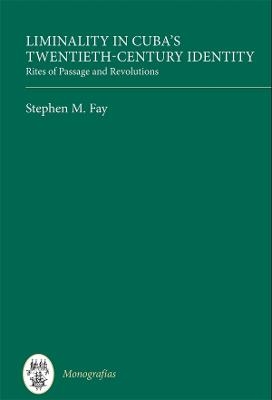
Liminality in Cuba's Twentieth-Century Identity
Rites of Passage and Revolutions
Seiten
2019
Tamesis Books (Verlag)
978-1-85566-334-3 (ISBN)
Tamesis Books (Verlag)
978-1-85566-334-3 (ISBN)
Presents research conducted in three difficult-to-access Cuban archives with rare textual resources, upon which very little analysis has ever previously been published.
This book offers an innovative and provocative analysis of the much-studied Cuban Revolution by reminding us that Fidel Castro's was actually the second of the island's twentieth-century revolutions. By bringing 1959 into criticalcommunication with the revolution of 1933, the book explores Cuba's trajectory from colony to republic to revolution, not as a linear inevitability, but as a rite of collective passage punctuated by turning points in which publicdebate turned to almost obsessive reflection on national 'identity' and national 'destiny'. In re-reading important works of many of Cuba's most significant intellectual and political figures, whilst also revealing little known but truly transcendental contributions to the collective narrative during both revolutionary periods, this book makes a major contribution to a more complex, nuanced and sophisticated understanding of Cuban cultural history and Cuban national identity in the twentieth century. In both periods, the book reveals revolutionary zeal challenged by dogged ambivalence, nihilism undercut by remembrance, the teleological pursuit of 'The End' of the national narrative displaced by 'An End', always and forever 'to be continued'.
STEPHEN M. FAY is a Lecturer in Spanish at Aston University.
This book offers an innovative and provocative analysis of the much-studied Cuban Revolution by reminding us that Fidel Castro's was actually the second of the island's twentieth-century revolutions. By bringing 1959 into criticalcommunication with the revolution of 1933, the book explores Cuba's trajectory from colony to republic to revolution, not as a linear inevitability, but as a rite of collective passage punctuated by turning points in which publicdebate turned to almost obsessive reflection on national 'identity' and national 'destiny'. In re-reading important works of many of Cuba's most significant intellectual and political figures, whilst also revealing little known but truly transcendental contributions to the collective narrative during both revolutionary periods, this book makes a major contribution to a more complex, nuanced and sophisticated understanding of Cuban cultural history and Cuban national identity in the twentieth century. In both periods, the book reveals revolutionary zeal challenged by dogged ambivalence, nihilism undercut by remembrance, the teleological pursuit of 'The End' of the national narrative displaced by 'An End', always and forever 'to be continued'.
STEPHEN M. FAY is a Lecturer in Spanish at Aston University.
Stephen M. Fay is a Lecturer in Spanish, Aston University.
Introduction
1923: Annus mirabilis
1927: Nihil admirari?
1933: Un dérèglement de tous les sens
1953: José Martí and Cuba's Centennial conciencia
1957: A moment in and out of time
1959-60: The turning of all tides
1965: Post-liminal Cuba?
Conclusion
Bibliography
Index
| Erscheinungsdatum | 19.07.2019 |
|---|---|
| Reihe/Serie | Monografías A |
| Verlagsort | Woodbridge |
| Sprache | englisch |
| Maße | 156 x 234 mm |
| Gewicht | 1 g |
| Themenwelt | Geisteswissenschaften ► Sprach- / Literaturwissenschaft ► Anglistik / Amerikanistik |
| Geisteswissenschaften ► Sprach- / Literaturwissenschaft ► Literaturwissenschaft | |
| ISBN-10 | 1-85566-334-1 / 1855663341 |
| ISBN-13 | 978-1-85566-334-3 / 9781855663343 |
| Zustand | Neuware |
| Haben Sie eine Frage zum Produkt? |
Mehr entdecken
aus dem Bereich
aus dem Bereich
Poetik eines sozialen Urteils
Buch | Hardcover (2023)
De Gruyter (Verlag)
59,95 €
Entzauberung und Faszination des Immergleichen in Literatur und Film
Buch | Softcover (2024)
Springer Fachmedien Wiesbaden GmbH (Verlag)
84,99 €
Buch | Softcover (2024)
belleville (Verlag)
20,00 €


